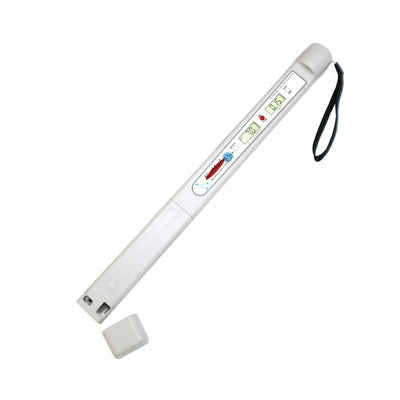Testing Your Pond Water
Hobbyist at every level should take the initiative to test every important aspect of their pond. Knowing and understanding the water chemistry of your pond is the root to successful fish keeping.
How often , and what should you test?
New Ponds should be monitored daily if you are carrying a fish load. Changes in water parameters need to be rigorously recorded and documented so that a pattern of events can be understood by the hobbyist. During this beginning period it is important to stay on top of the parameters, because biologically your new system will not be developed adequately enough to handle any waste load from fish. When the system starts to show consistency you the hobbyist can take charge of important things that need to be done, whether it is dosing additives or doing water changes. A hobbyist does not truly know how to benefit their pond environment until they understand the parameters of the water in their pond.
When a ponds starts to show consistent parameters water should still be tested on a weekly basis. In order to have full control over your pond, and its inhabitants, it is important to know what is going on in the water. Weekly checks are very important if you are a responsible fish keeper. Taking the time to test once a week will be often enough to see change in the parameters of your water. Developing this attentive behaviour allows for us to be preventative to any possible catastrophes that could potentially be at stake. You have to see what is going on before you take any actions what so ever.
Common things tested in water parameters include ammonia NH3, Nitrite N02, and Nitrate N03. When fish start to produce waste the pond will emit high levels of ammonia. High levels of ammonia is very dangerous for fish, it will kill them. When a pond develops its first stage of beneficial bacteria the ammonia can then be transformed into nitrite. Nitrites are also very dangerous for fish. Water changes should be done to assist in diluting both high amounts of ammonia or nitrites at this point. This is why it is important not to feed heavily in a new pond environment. When your pond ages even further a different type of beneficial bacteria emerges. The new type of beneficial bacteria converts nitrites into nitrates. Nitrates are considered to be less toxic to fish than ammonia, and nitrites but still dangerous in high amounts. Nitrates are also considered to be plant food for plants in your system. In maturely cycled environments one should mainly have to deal with nitrates, because there would be enough of both types of beneficial bacterias to biologically transform ammonia into nitrates. Upon testing parameters nitrates should be handled by either incorporating more plants or by simply doing water changes to balance out the environment.







